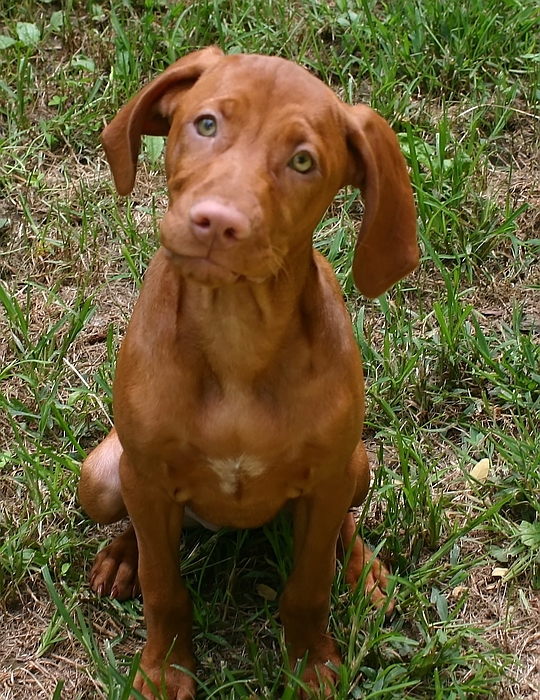
Vizsla dogs are very interesting. In fact, they’re the Dog of the Week!
Appearance:

Vizsla dogs are very unique. They have reddish-brown coats that make them look like bloodhounds. But there’s a difference. Bloodhounds have either black, brown, light pink noses, or at least something that isn’t reddish-brown. But Vizsla dogs have noses that blend in with their coat. This makes them easy to recognize. Also, to tell your pet Vizsla between a stray Bloodhound, you’ll want to give it a collar, too!
Personality:

Vizsla dogs may look tough when they are fully grown, but actually, they are very attached to their owners, and aren’t known to be aggressive! Although, there are sometimes they are overprotective of their owners and are big-time barkers if they sense a threat to the family.
Vizslas are also very athletic and energetic, and they will get bored if they are left alone or have to play by themselves when everyone is busy. So, make sure to give your Vizsla exercise because they also need rest.
Vizslas are also a little shy, but when trained, they are very good with strangers, children, and other animals! (Plus, sociable.)
Origin:

Hungary. There are many types of simple origins, but this one is Hungary. It is located in Europe, as the caption above says. This is why the Vizsla is also known as the Hungarian Pointer.
Diet:
Vizslas are omnivores. This means that they eat just about anything, but NOT chocolate, milk (when about 6 months old for milk) grapes, and other things, too. Here is a list of the top ten dog foods they should NOT eat.
Chocolate (Dog Poison)
Milk (When about 6 or 8 months)
Grapes (Dog Poison)
Grape Jelly (Dog Poison)
Shakes (Dog Poison)
Rotten Food (Will Vomit)
Bones (Peril)
Dairy Products (NOT AT ALL!!)
Raisins (Dog Poison)
Avocado (Dog Poison)
These are the top ten foods they should not eat. Research more to see what other foods they shouldn’t eat.
Health Problems:

Vizsla dogs have health problems, like epilepsy, and bleeding disorders. Here is a list of health problems:
Epilepsy
Bleeding Disorders
Bone and Joint Disorders
Eye Problems
Dental Disease
Skin Conditions
Obesity
Infections
Parasites
Lymphosarcoma
Proper Bleeding
Mange
Note: Mange is not really a health problem but is something super big to look after. Mange is hair loss for animals.
Well, that’s it for the dog of the week! Please research more and see you next time!
